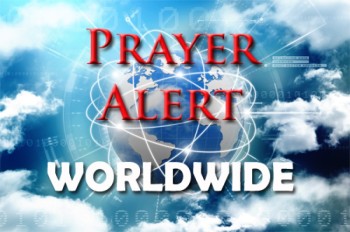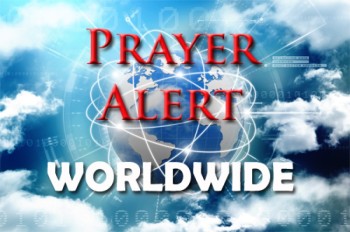Displaying items by tag: Africa
Kenya: is this man a multiple murderer?
Collins Jumaisi Khalusha has appeared in court after being charged with multiple murders following the discovery of nine dismembered bodies in a Nairobi quarry. Khalusha has supposedly confessed to killing 42 women: his lawyer has claimed he was tortured into confessing, which prosecutors deny. The case has intensified scrutiny on Kenya's police, already under pressure from anti-government protests and accusations of human rights abuses. The bodies, found in sacks, were mostly women aged 18-30. Police say they have found evidence linking Khalusha to the murders, including mobile phones and female clothing at his home. The case has sparked public outrage and renewed focus on femicide in the country: some 500 Kenyan women were murdered between 2017 and January 2024. An independent police authority is investigating potential police involvement. Protests demanding president William Ruto's resignation continue amid the scandal: police chief Japhet Koome has resigned, after pressure to provide answers about the police’s conduct during the protests.
South Sudan: peace talks face stumbling block
South Sudan's peace talks, which have been hosted by Kenya since May, were nearing completion, but are facing a setback due to opposition demands to revoke a bill permitting detention without warrants. The talks - dubbed Tumaini, Swahili for hope - have resulted in a draft agreement proposing to extend the country's transitional period and postpone the coming election (due on 22 December) to allow finishing up the country's constitution and electoral laws. However, opposition leader Pagan Amum Okiech has refused to sign an agreement unless the proposed National Security Act is repealed. He says, ‘This law violates the fundamental rights and freedoms of South Sudanese citizens; it eliminates civic and political space. There can be no peace or democracy under such a law.’ Human Rights Watch has called on President Kiir to reject the bill, warning it undermines human rights and democratic progress.
Mali: forty killed in violent attack
Around forty people were killed by unidentified armed men in a village in central Mali on 1 July. The attack, which occurred during a wedding, caused panic and forced many to flee. Survivors reported the attackers surrounded the village and opened fire. No group has claimed responsibility, but groups linked with al-Qaeda and IS have been active since 2015. They have seized territory, making parts of the country ungovernable. Despite promises to tackle insecurity, Mali’s military government, which took power in a 2020 coup, has struggled to control the violence. It has also been accused of human rights abuses. The UN peacekeeping mission in Mali ended its deployment last December, in a pullout ordered by the government.
Kenya: president backs down after protesters killed or injured
Following violent protests in which 22 people were killed, president William Ruto has announced he will not sign a finance bill proposing new taxes. The bill, which aimed to raise funds to pay off debt, has faced widespread opposition from Kenyans struggling economically. On 25 June thousands of protesters stormed parliament, an action which Ruto called ‘treasonous’. In the chaos which ensued, the police and military were accused of brutality, with human rights groups reporting abductions and hundreds of injuries. Acknowledging the ‘widespread dissatisfaction’, Ruto admitted the need for a national conversation on managing the country's affairs together. The high court has suspended the military deployment and ordered the release of all protestors. Many young voters who supported Ruto in 2022 now oppose his reforms, feeling betrayed by the economic hardships. He has been criticised for not adopting a more conciliatory approach, and widespread protests continue: see
South Africa: Ramaphosa's second term, but with a coalition government
Cyril Ramaphosa has commenced his second full term as president, after his party formed a coalition government. In his inauguration speech, Ramaphosa highlighted the necessity for leaders to work together to address deep inequalities, warning that failure to do so could destabilise the nation. The ANC, governing since apartheid ended in 1994, lost its majority for the first time, securing only 40% of the vote and losing 70 seats. The Democratic Alliance (DA), which received 22%, and three smaller parties joined the coalition, having agreed a common agenda of fixing the country’s infrastructure, providing basic services such as water and power, and creating jobs. Ramaphosa has said that the country’s society remains deeply unequal and highly polarised, so he knows that there are some huge challenges ahead.
South Africa: ANC’s coalition dilemma
As predicted before the elections, the African National Congress (ANC) has lost its parliamentary majority, securing only 40% of the vote. To govern, it needs a coalition partner or might attempt a minority government. It could partner with the Democratic Alliance (DA), which won 22% but is widely seen as aiming to protect white minority privileges. Alternatively, it could align with Jacob Zuma's uMkhonto weSizwe (MK), which surprised many by gaining 15% of the vote, or Julius Malema's Economic Freedom Fighters (EFF); a third alternative is a government of national unity. Cyril Ramaphosa insists any coalition must respect the current constitution: the ANC, EFF, and MK combined still fall short of the two-thirds majority needed for constitutional changes. The decision about what to do will have a major impact on South Africa, which faces major security and economic challenges.
Somalia: educational consquences of huge floods
Heavy rains have flooded schools in Somalia's central Hiran region, forcing over 37,000 students out of school. The flooding has damaged learning materials and classrooms, displacing many students to distant locations and complicating efforts to resume education. Parents fear the disruption will negatively affect their children's performance in upcoming national exams, and local teachers are concerned about the long-term impact on education. Parents are urging the government to establish schools on higher grounds to avoid future disruptions. Last year, the government organised special exams after similar flooding incidents. Officials say they are committed to ensuring students can participate in exams despite the current challenges.
South Africa: has the ANC lost its way?
For years, the African National Congress (ANC) stood as a beacon of hope in South Africa, dedicated to ending white minority rule and championing democracy and equality. Revered under Nelson Mandela, the ANC's transformation from a liberation movement to a ruling political party brought high expectations. However, thirty years later, many South Africans feel disillusioned, believing it has failed to fulfil its promises. Former president Jacob Zuma, ousted in 2017 due to corruption allegations, has returned with a new party, uMkhonto weSizwe, criticising his successor Cyril Ramaphosa, but his disqualification from a parliamentary run due to a criminal conviction has heightened political tensions. The 29 May elections see the ANC struggling to maintain its majority and possibly facing having to form a coalition government - which would mark the most significant political shift since the end of apartheid in 1994.
WHO gives Namibia recognition for almost eliminating HIV
The World Health Organisation (WHO) has announced that Namibia has become the first African nation, and the first high-burden country worldwide, to nearly eliminate mother-to-child transmission of HIV and hepatitis B. This achievement is especially notable because Namibia hosts over 200,000 people living with HIV, with the disease disproportionately affecting women. Despite these challenges, the country has achieved nearly universal HIV testing for pregnant women and a robust treatment system, which have reduced transmission by 70% in twenty years. In 2022, only 4% of newborns from HIV-positive mothers contracted the virus, while nearly 80% received a timely hepatitis B vaccine. The WHO has awarded Namibia a ‘silver tier’ for its hepatitis B efforts and a ‘bronze tier’ for HIV reduction. These accomplishments underscore the critical impact of committed leadership and effective public health strategies.
South Africa: many killed and missing after building collapses
Rescuers are urgently searching for 42 individuals missing after a five-storey apartment building collapsed on 6 May. 33 people have been rescued from the debris, with seven confirmed fatalities. The building was under construction when it collapsed, prompting an ongoing investigation into the cause. Most of the 75 workers originally at the site are still unaccounted for. The rescue operation, which involves lifting collapsed floors, is expected to last up to five days. President Cyril Ramaphosa, expressing sympathy for the families, has called for the investigation to ‘bring closure to the community and prevent a repeat of this disaster’. Over 200 rescuers, including sniffer dogs and heavy equipment, are continuing to search through the now-flattened site.









